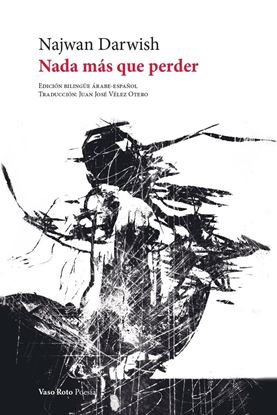

NADA MAS QUE PERDER
Cuando se piensa en Najwan Darwish es natural que venga a la mente el poeta palestino de quien ya esta misma casa publicara Exhausto en la cruz, con prólogo de Raúl Zurita. Pero lo que llama la atención de este poemario es la altura de Darwish, su empatía, su dolor puesto en su pueblo, su gente y, ante todo, su capacidad de situarse en el lugar de los habitantes de países enfrentados a una guerra milenaria para la cual no encuentra más solución que hablar desde sí mismo como árabe, armenio, latinoamericano, kurdo, arameo... Su humanismo es universal y habla por todos. Bajo esta mirada, Najwan atraviesa la línea de guerra, duerme en Gaza, mira la sangre, el dolor, la mentira, la injusticia y eleva cada uno de estos elementos que sirven de excusa al mundo para mostrar que la poesía está muy por encima de guerras, territorios, exilios, destierros y silencios obligados.
1,550
1,163
CUANDO LLEGA LA NOCHE. CUATRO RELATOS TE
Cuando llega la noche aparecen la tensión, el miedo y el suspense más oscuro. De eso tratan estas tres novelas cortas, reunidas por primera vez en un libro y que nos hablan de personajes al límite, enfrentados a los peligros y misterios que solo acechan si las sombras salen de sus escondites.
Historia de un crimen perfecto es la confesión en primera persona del asesino Eric Rot. A través de cien páginas redondas —en las que se adivinan ecos de Hitchcock y Poe—, este relato nos habla sobre el peso insoportable de algunos secretos.
En Noche de almas, el lector acompaña a una pareja de mochileros que han medido mal sus fuerzas en una travesía por el desierto. Cuando, al borde de la extenuación, al fin llegan a una antigua casa colonial rodeada por un extraño círculo de piedras, piensan que están a salvo. Sin embargo, será entonces cuando empiece la verdadera pesadilla.
1,550
1,163
LA NOCHE DE LOS CUCHILLOS
La pequeña isla de Malaz y su núcleo urbano dieron nombre al Imperio; ahora solo es un tranquilo puerto. Sin embargo, esta noche algo cambiará. La ciudad se agita y sus habitantes atrancan las puertas y rehúyen a los desconocidos. Está a punto de producirse una convergencia: se trata de una Luna Sombría que amenaza a los malazanos con jaurías demoníacas y criaturas oscuras.
Dice la profecía que esta noche regresará el emperador Kellanved, y son muchos los que pretenden evitarlo. Las facciones que coexisten en el Imperio se disputan el trono al tiempo que la Luna Sombría convoca a una presencia, más antigua y poderosa, que devastará la isla.
1,450
1,163
POEMAS ESCOGIDOS 1962-1996
Quien escribe un poema lo escribe, antes que nada, porque el poema es un colosal acelerador de la conciencia, del pensamiento, de la percepción del mundo». Del discurso de Joseph Brodsky al recibir el Premio Nobel de LiteraturaA caballo entre dos lenguas durante décadas, el bilingüismo de Brodsky no solo revitaliza con singular desenvoltura un lenguaje heredado, sino que también proyecta una radical y profunda exploración de sus metros e imágenes, elevada a una forma particular de metafísica. Sin embargo, Brodsky es también un poeta eminentemente físico, cuyo tema fundamental es la encrucijada entre el espacio, el tiempo y los sentidos. Ningún otro escritor contemporáneo habla tanto de la intemperie. Sus musas no son Calíope ni Tersícore, ni sus artísticas hermanas asociadas con emociones y sentidos, sino Urania, musa de la astronomía, «más vieja que Clío», matrona del conocimiento estelar, del espacio puro, de esas extensiones heladas en medio de las cuales el hombre parece el derrubio lodoso que arrastra un glaciar.
1,550
1,163
LA SAGA DE LOS LONGEVOS 2. LOS HIJOS DE
La inesperada vuelta del hijo de Iago del Castillo, a quien creyó muerto en la batalla de Kinsale en 1602, alterará la tranquila vida que este y Adriana habían conseguido construir en Santander. Sin embargo, Gunnarr, el corpulento joven de melena rubia y ojos idénticos a los de su padre, ha regresado para ejecutar la venganza que juró llevar a cabo hace quinientos años.
1,550
1,163
LA ESPOSA DEL MERCADER
La joven inglesa Isabella Saunders se ha quedado sola en el mundo: sin un hogar y sin recursos, su belleza y fascinante cabellera pelirroja en la Singapur de 1860 se convierten en un gran escollo para conseguir un trabajo como institutriz. Todo su mundo se transformará cuando conoce a Bram Deagan, un apuesto y decidido irlandés llegado desde la lejana Australia para conocer de primera mano los nuevos productos de Oriente y hacer realidad su sueño de convertirse en un próspero comerciante. Isabella deberá decidir si las nuevas colonias, las lejanas y peligrosas tierras del continente más olvidado, pueden convertirse en su nuevo hogar. ¿Hallará el amor y la felicidad en el extremo opuesto del mundo?
1,550
1,163














